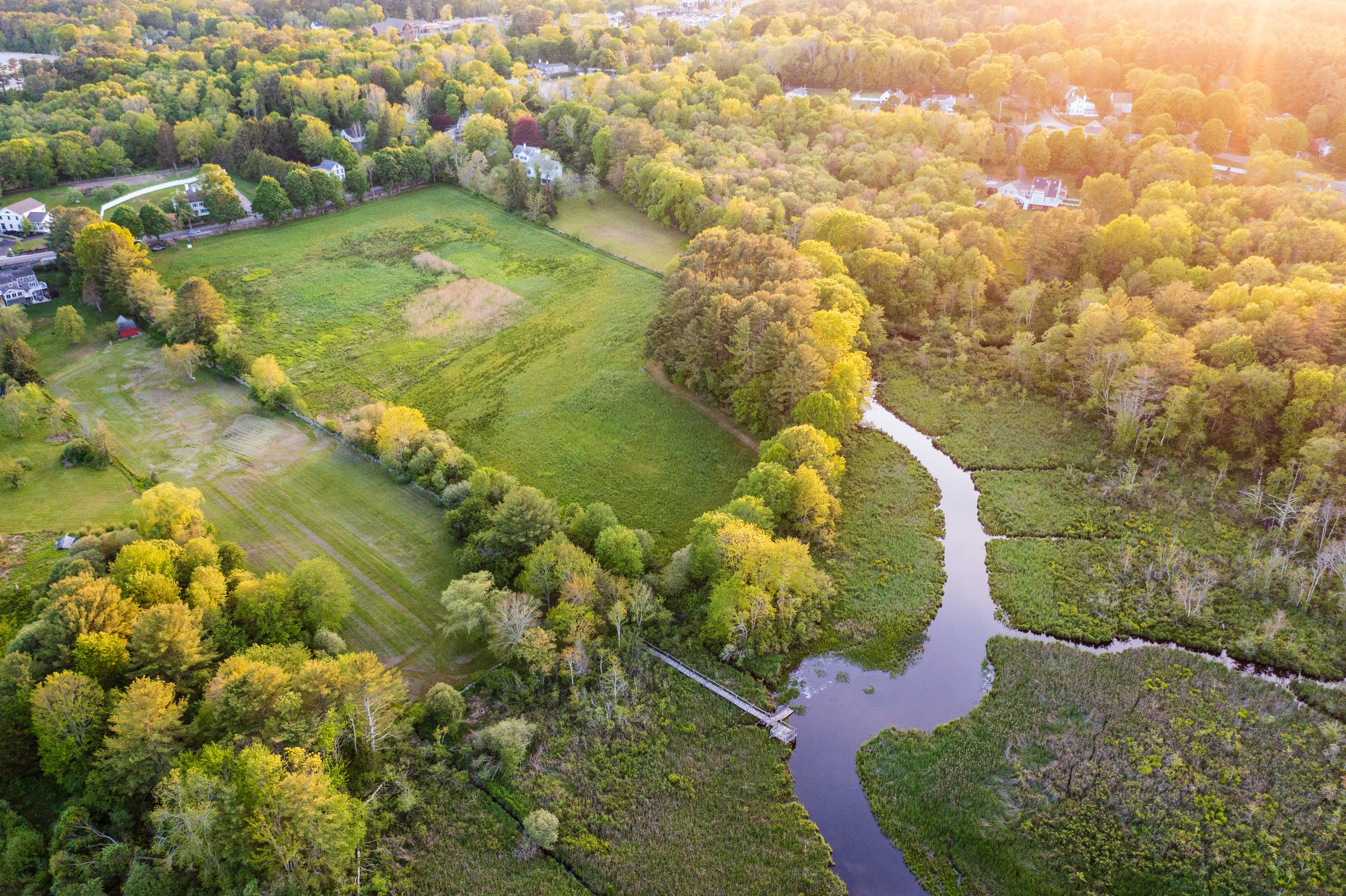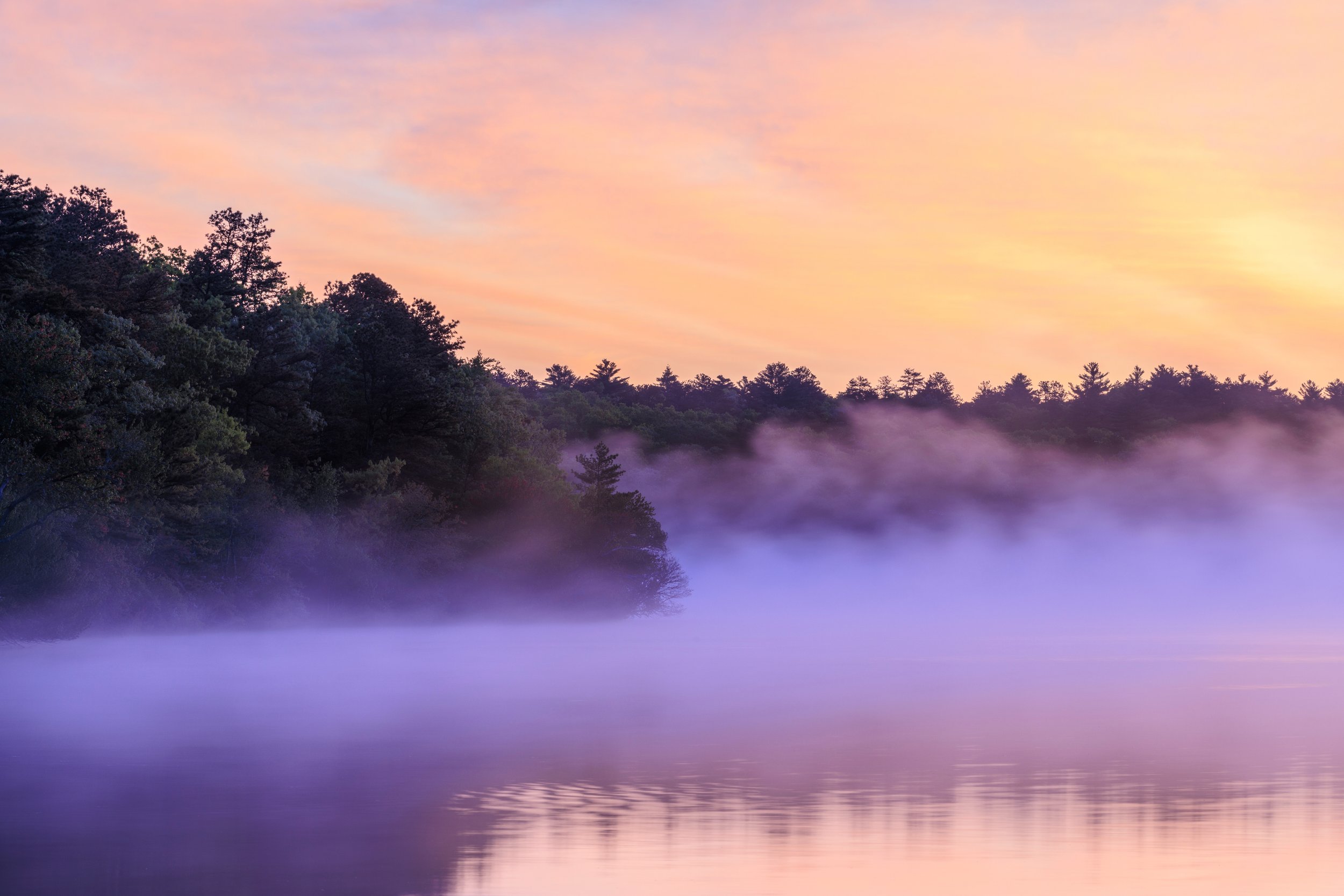On October 21, the Town of Rockland dedicated its newest open space preserve—McCarthy Farm Conservation Area.
Late Summer Land Acquisitions Update
By Scott MacFaden, Director of Land Protection
Thus far in 2022, we’ve completed a variety of projects across our coverage area that protect a diverse array of habitats and conservation values, including properties on two of the region’s major rivers.
In February, we completed the first two phases of a long-contemplated project that will create our first preserve in Plainville. These first two steps involved adding another two acres to the 33.5-acre Conservation Restriction (CR) we’ve held on lands of the Crystal Spring Center for Ecology, Spirituality, and Earth Education Inc., since 2008, and then assigning the expanded CR to another qualified nonprofit conservation organization—the Attleboro Land Trust. With those steps concluded, the third and final step will transfer the “fee simple,” or outright ownership of the property, from Crystal Spring to Wildlands Trust. We expect that final transfer to occur before year’s end.
A drone's view of Sylvester Field and the Indian Head River in Hanover. Photo by Jerry Monkman.
In June, we acquired five acres in Norwell along the North River that protects important habitat for marsh wrens. Donated by the Estate of Clayton Robinson, the parcel represents the culmination of the Sylvester Field Preservation Project, through which we previously protected 20 contiguous acres along the Third Herring Brook in nearby Hanover.
In late July, we purchased 30 acres on Halfway Pond in Plymouth that was the largest remaining unprotected parcel on the pond’s west shore, and consequently one of our longest-standing preservation priorities. The property includes pockets of Pine Barrens, a globally rare natural community, and directly abuts and expands our Halfway Pond Conservation Area, now over 460 acres in extent and one of the crown jewels of our protected lands portfolio.
Most recently, in the waning days of August we protected 11.7 acres in Lakeville along the upper Nemasket River through the combination of a deed restriction and a two-acre land donation. This hybrid project protects over 900 feet of linear frontage along the Nemasket, a major tributary of the federally designated Wild and Scenic Taunton River.
Morning fog on Halfway Pond in Plymouth. Photo by Jerry Monkman.
We’re working to close more projects by year’s end, including the third and final phase of the Plainville project, and projects in Bridgewater, Scituate, Rockland, and Hanson.
Watch this space!
Staying the Course to Protect Atlantic Coastal Woodlands
Read Time: 3 min
By Karen Grey, Executive Director
As we were sealing the fate of the newest addition to Wildlands’ 550-acre Halfway Pond Conservation Area this past July, one of the sellers remarked, “Can you believe we started talking about this seven years ago?” He was surprised when I explained that it’s not unusual for projects to take a decade (or sometimes two) from start to finish. Establishing trust with those contemplating the fate of their land is the lynchpin to success, and building that trust requires an investment of time from both parties. Often, the landowner is surprised at how long a project can take, but rarely are we.
Wildlands Trust has methodically worked to build the relationships necessary to protect the last four privately held parcels within our largest holding, the Halfway Pond Conservation Area in Plymouth, for the past thirty years. We successfully protected three of the four parcels by 2015 before turning our sights toward the jewel in the crown, the 30-acre property owned by the Advaita Meditation Center (AMC), headquartered in Waltham. AMC had purchased the land and its accompanying 11,000-square-foot building as a retreat center in the 1980s, and by 2015, its aging membership was rethinking the organization’s future. For the past seven years, we have worked with AMC to contemplate a purchase of the property by Wildlands that would include a term tenancy for AMC to continue using the retreat center several times a year. On July 26, 2022, we celebrated the consummation of this win-win-win scenario for Wildlands, AMC, and the people of Plymouth.
Halfway Pond Conservation Area is a significant holding within the Atlantic Coastal Woodland (ACW), a 20,000-acre forested corridor in Southeastern Massachusetts spanning from Carver and Wareham in the west and through Plymouth to Cape Cod Bay in the east. Wildlands Trust has focused much of its work over the last 50 years on protecting this landscape, recognized as the largest contiguous forest in one of the fastest-growing regions in the Northeastern United States. The ACW is an intact ecosystem home to globally rare pine barrens and coastal plain ponds with huge sections uninterrupted by roads and development. Other iconic landscape features of the ACW include wooded wetlands, cranberry bog complexes, and a mosaic of pitch pine, scrub oak, and scattered ponds with rare species found nowhere else in the world; ACW has the second-largest remaining tract of Coastal Pine Barrens worldwide. Globally rare plants sit upon deep glacial deposits to filter and protect the largest drinking water aquifer in Massachusetts, the Plymouth-Carver Sole Source Aquifer.
Large-scale development projects continually threaten to fragment and denigrate the ecological integrity of this vital landscape. We are delighted that this property is now permanently protected. Plans are underway to expand trail systems and establish a stewardship training center on the property.
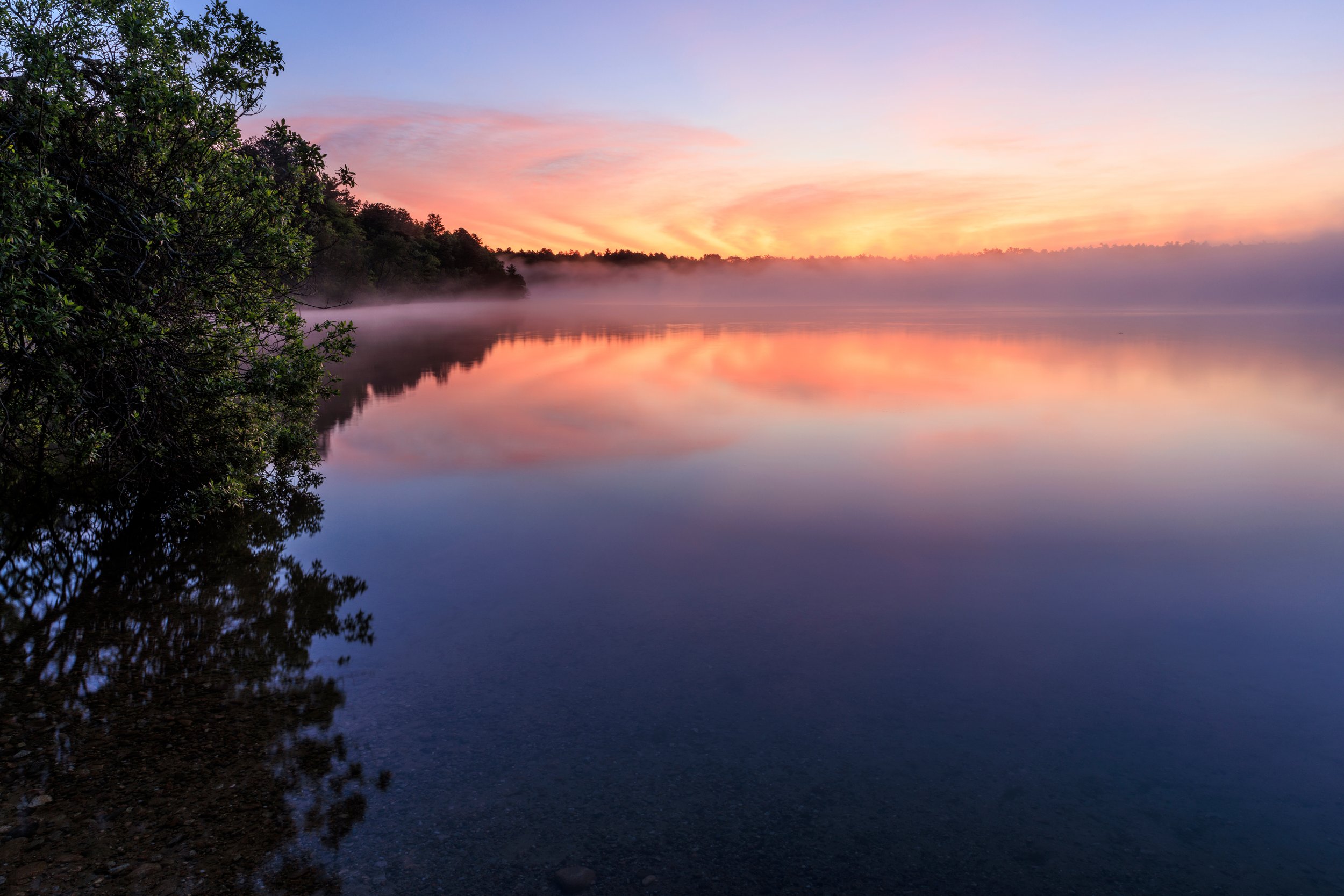
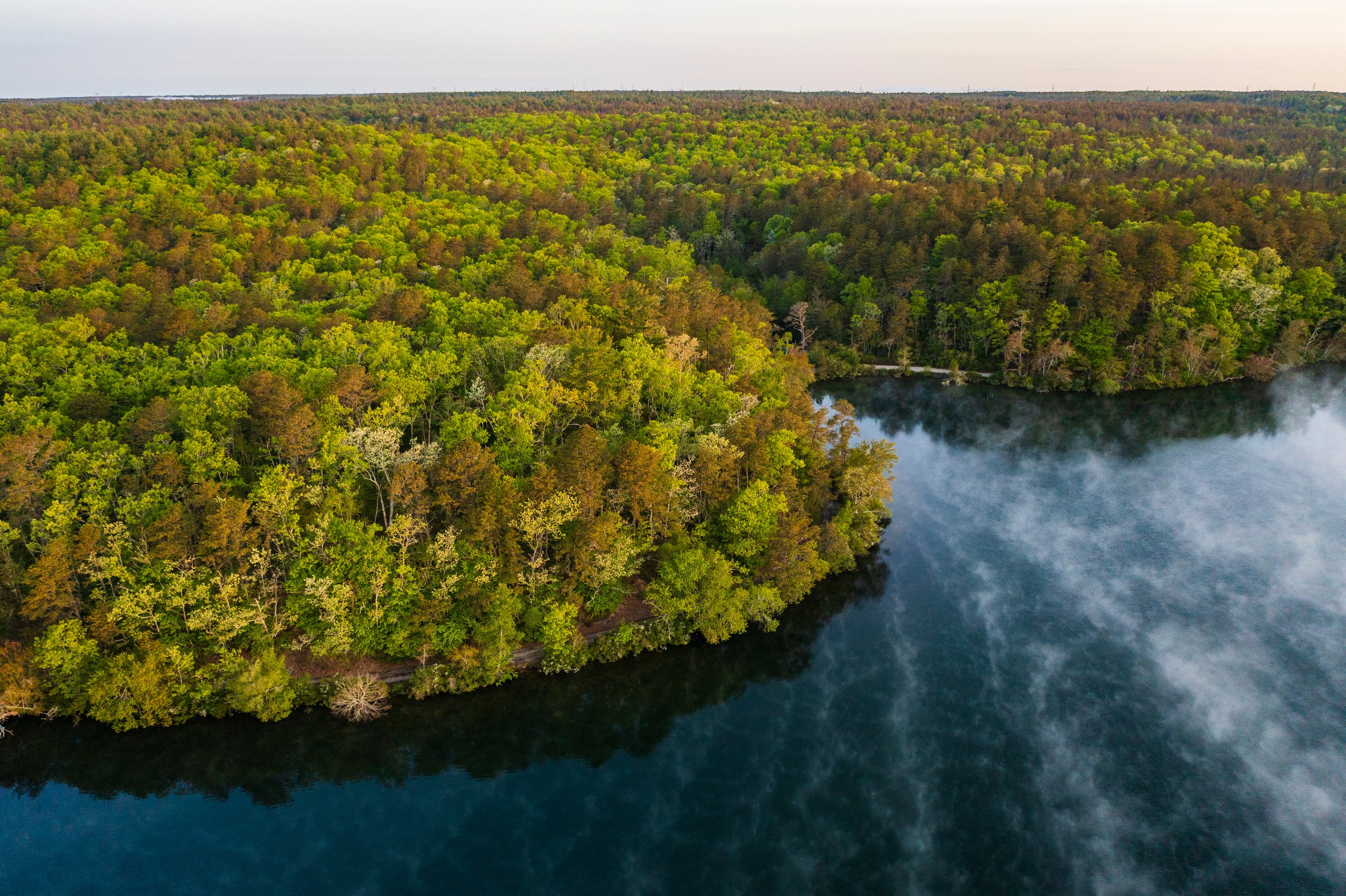
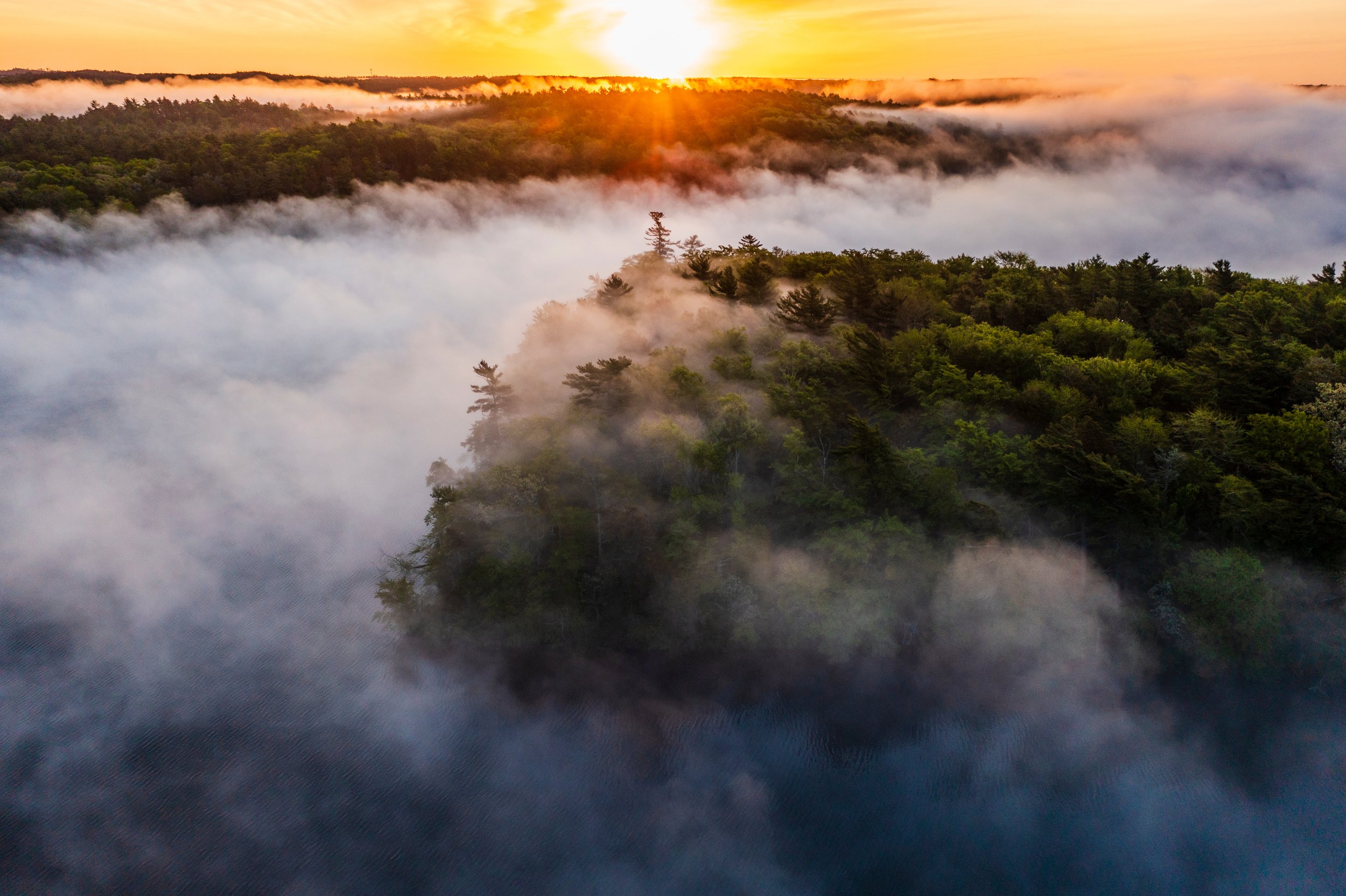
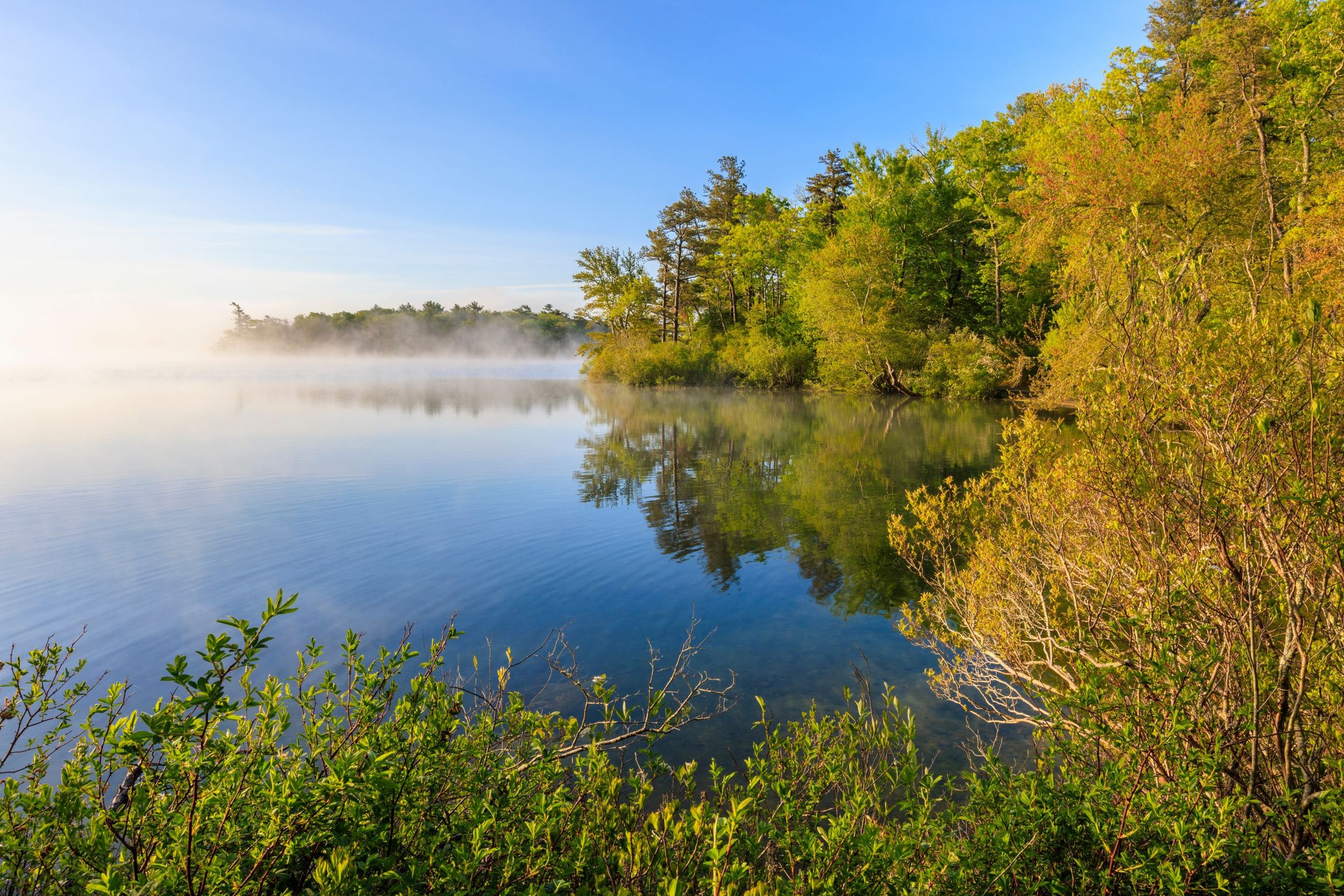
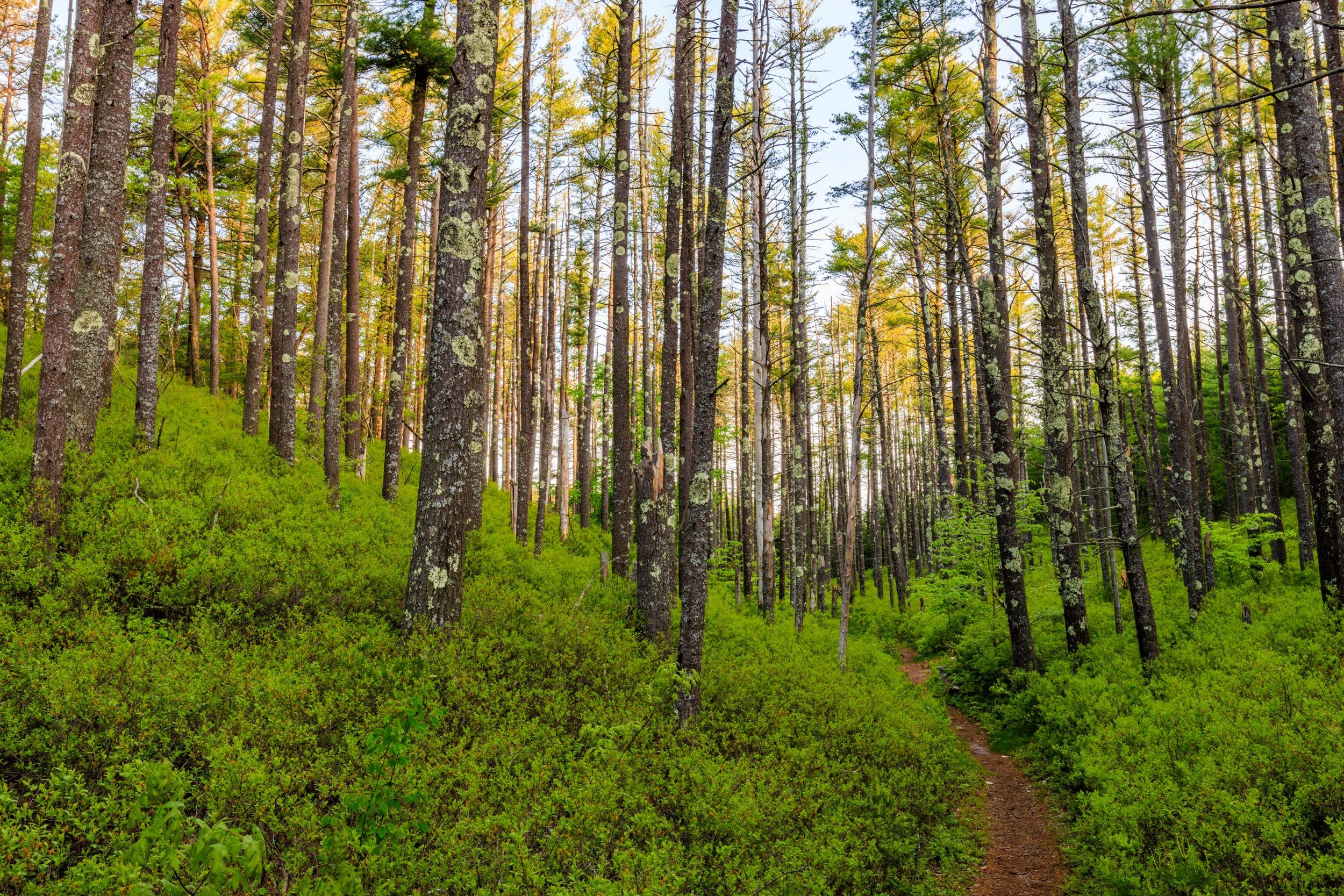
Spring Has Sprung...Earlier Than Usual?
Read Time: 3 min
By Mitchell Hennings, Land Steward for Wildlife & Habitat
You may have noticed on your outdoor walks and adventures that this year’s trees, shrubs, and flowers began to greet you much earlier in the season, blooming and filling in the gray and brown spaces of the woods with their intricate flowers and leafing patterns. If you noticed this, you might have also wondered why this occurs. Are the plants confused? Are their calendars mixed up? Or is something much larger at play that is influencing plant behavior across the country?
Plants can sense subtle changes within their environment, whether it be early rain or lack thereof, increased photoperiods (longer exposure to the sun), frequent disturbances, or intense weather events. These variables impact how plants progress through their stages of growth to sprouting leaves, fruiting, or developing flowers. Yet, if the timing involved in these processes is off by days or even weeks, like we are now experiencing, there can be untold impacts on the plants whose growth is regulated by it.
This year, plants began to leaf out and fill our forests and roadsides with green earlier than usual, but these growing plants are not naturally occurring in our environment. Plants like Honeysuckle, Bittersweet, Autumn Olive, Multi-Flora Rose, Barberry, and Norway Maple all leaf out much faster than our native plants. These invasive plants had either full leaves or were beginning to bloom before native plants and trees had even begun to produce leaves. The faster phenology of the invasive plants is a clear competitive advantage over the native plants, as they have longer flowering periods and a higher chance of attracting pollinators and going to seed sooner (Kherberger & Holzschuh 2019). This behavior puts increased pressure on native plants to adjust their flowering period earlier in the season, but this may prove to be even more of an issue. If these native plants adjust their flowering period, they could then be impacted by sub-optimal temperatures, low pollinator activity, and a higher chance of dying off (Kherberger & Holzschuh 2019).
Another well measured variable that has been found to contribute to the forward progression of early leaf onset is the decrease in precipitation events. An article published in the journal Nature details a study conducted to understand the impacts of precipitation on native and nonnative plants and how those complex interactions impact leaf onset date, which is when plants produce leaves (Wang et al. 2022). When there are decreased precipitation days, there are also decreased cloudy days to allow for radiation absorption by the plants, which is what signals plants to begin producing leaves (Wang et al. 2022). You don’t need to be a scientist to notice the decrease in rain over the years during the spring season. The adage “April showers bring May flowers” used to ring true ten or twenty years ago, but in today's climate, it looks like flowers bloom in early April, leaving May irrelevant.
Sources:
https://www.nature.com/articles/s41598-019-51916-0
https://www.sciencedaily.com/releases/2022/02/220217155232.htm
Vandalism Threatens Shorebirds at Shifting Lots Preserve
Read Time: 2 min
By Amy Markarian, Senior Copywriter
We are disappointed to report that, for the second year in a row, we are experiencing significant vandalism at Shifting Lots Preserve, in Plymouth. Wildlands' protective fencing that surrounds the shorebird nesting areas, as well as signage informing visitors that dogs are not allowed on the beach, has been damaged and/or removed by visitors on several occasions this spring. The fencing and signs are both critical tools we use to ensure the safety of protected birds on our preserve.
As many of you know, Shifting Lots provides important habitat for Piping Plovers, which are listed as Threatened on both the Massachusetts and Federal Endangered Species Lists, and Least Terns, which are listed as a Species of Special Concern in Massachusetts and are protected under the state Endangered Species Act (MESA).
We know that the Wildlands community cares about local wildlife as much as we do. So, we are asking you to join us in making sure that such acts of vandalism do not continue. If you observe anything unusual and/or see vandalism to our fencing or signage at Shifting Lots Preserve, please take photos and/or videos and reach out to the Plymouth Police Department with the information as soon as possible. We appreciate your support in the protection of these vulnerable species!
(Read Executive Director Karen Grey’s letter to Shifting Lots’ neighbors here.)

